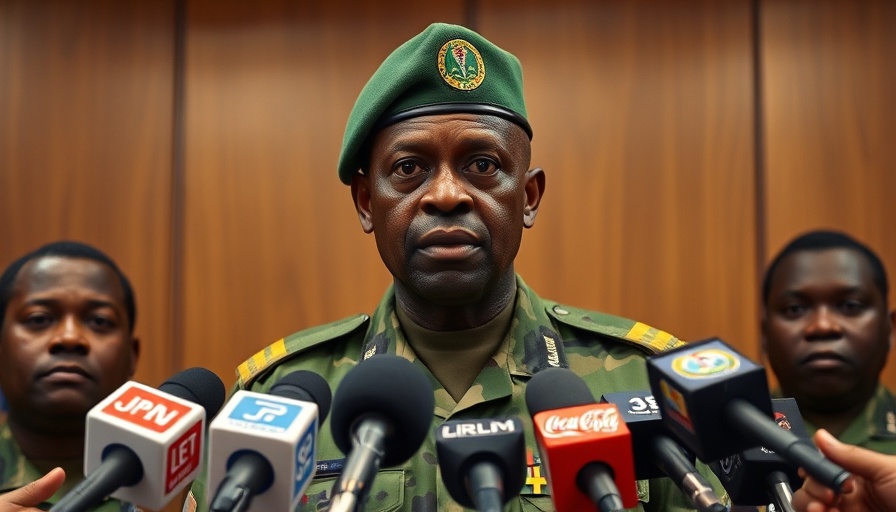
The Surprising Advice from Nigeria's Defence Chief
In a recent interview, Nigeria’s Chief of Defence Staff, General Christopher Musa, made headlines by advising citizens to take up karate or judo to defend themselves against rampant insecurity and banditry in the country. While promoting physical fitness through martial arts, the suggestion raises serious concerns about the practicality of such advice in the face of armed violence.
Martial Arts as a Response: Is It Enough?
It's no secret that martial arts can empower individuals, providing not just self-defense techniques but also physical fitness and mental discipline. However, when General Musa suggested avoiding places where bullets are flying, his comments struck many as tone-deaf. This perspective trivializes the complexity of violence in Nigeria, where public spaces—homes, churches, and schools—have become targets for attacks.
The Reality of Violence: A Call for Support, Not Blame
The notion that one can evade violence through awareness alone undermines the systemic failures contributing to Nigeria's security crisis. Victims shouldn’t be held accountable for crime; rather, protection should be the responsibility of those in power. Historical incidents, such as the Chibok kidnapping and church bombings, remind us that these issues are deeply rooted and not solvable by personal martial training alone.
Are Weapons Really the Answer? Perspectives on Gun Ownership
In tandem with martial arts training, discussions around civilian gun ownership have emerged. Some politicians argue that arming citizens could deter crime, a notion that brings its own set of complications and moral dilemmas. This speaks to a critical point: should individuals turn to guns for protection, or should there be a holistic approach to safety that includes community and governmental support?
Practical Self-Defense: What Do Citizens Really Need?
For many in Nigeria, the idea of gaining self-defense skills—whether through self-defense classes, kickboxing, or martial arts—is appealing, especially as a way to build confidence and resilience. Yet, it’s crucial that such training is seen as part of a broader conversation about community safety and security strategy rather than a standalone solution.
Empowerment vs. Responsibility: Understanding the Balance
The encouragement to learn martial arts can be empowering and beneficial for fitness, especially among families, women, and youth. Programs in places like Gurnee offer various forms of martial arts, such as karate classes and self-defense training, which can help build skills and promote confidence. However, these classes should complement—not replace—government accountability in ensuring public safety and security.
Conclusion: A Call for Comprehensive Security in Nigeria
While taking martial arts classes in Gurnee or elsewhere can provide valuable skills and a sense of empowerment, it’s essential to recognize that safety in Nigeria extends beyond individual preparedness. Collective action and systemic change are necessary to truly address the roots of violence. Engaging in conversation about self-defense, while advocating for accountability from authorities, is vital. Awareness and skills can coexist with a demand for better protection and safety for all.
In light of these discussions, consider connecting with local martial arts schools in Gurnee to explore classes for yourself or your children. It’s a step towards empowerment and a community-focused approach to safety.
 Add Row
Add Row  Add
Add 




Write A Comment